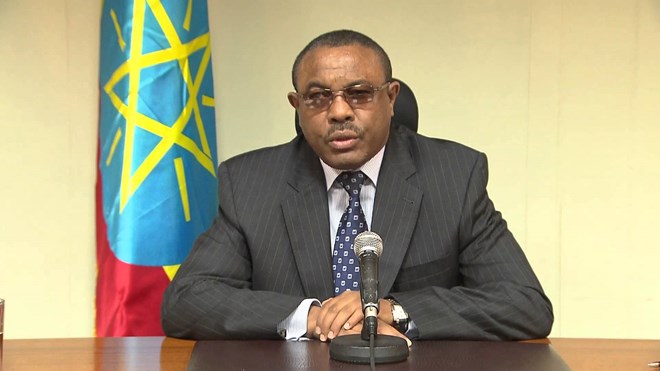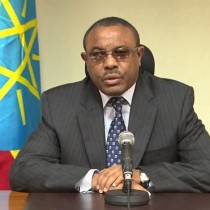
Ethiopia announces new curbs as part of state of emergency measures
Ethiopia imposed curbs on its opposition, travel restrictions on diplomats, and a dusk-to-dawn curfew around major projects in new measures announced on Sunday that follow the declaration of a six-month, nationwide state of emergency. 
The state of emergency was effective from Oct. 8.
In a directive released on Sunday, opposition parties were barred from issuing statements deemed to pose a threat to the "sovereignty, security and the constitutional order of the country" to both domestic and foreign press.
The
raft of measures include granting security services powers to stop and
search suspects, and search homes without court authorisation.
Contacting opposition groups branded "terrorist movements" has been
forbidden. Ethiopia has designated five groups, including two armed
secessionist movements, as terrorists.
The violence in Oromiya, Ethiopia's largest and most populous region, and to a lesser extent in Amhara province, has overshadowed the success story of one of Africa's fastest growing economies.
The latest flare-up in Oromiya followed a stampede on Oct. 2 in which at least 55 people were killed after police fired teargas and shots into the air to disperse protesters during a crowded annual festival in the town of Bishoftu.
The unrest has sparked attacks on businesses, many of them foreign-owned, including farms growing flowers for export.
The new measures include a 6 p.m. to 6 a.m. curfew on access to "economic installations, infrastructure and agricultural development projects, factories and others" for anyone apart from authorised employees.
Diplomats are also restricted from travelling beyond a 40 km (25 mile) radius of the capital.

Monday October 17, 2016

Prime Minister Hailemariam Desalegn declared the state
of emergency earlier this month, saying months of unrest threatened the
Horn of Africa nation's stability.
More than 500 people have
been killed in protests in the Oromiya region surrounding the capital
Addis Ababa and other areas since last year, after anger over a
development scheme for the capital sparked broader anti-government
demonstrations over politics and human rights abuses.
The state of emergency was effective from Oct. 8.
In a directive released on Sunday, opposition parties were barred from issuing statements deemed to pose a threat to the "sovereignty, security and the constitutional order of the country" to both domestic and foreign press.
Ads By Google
The violence in Oromiya, Ethiopia's largest and most populous region, and to a lesser extent in Amhara province, has overshadowed the success story of one of Africa's fastest growing economies.
The latest flare-up in Oromiya followed a stampede on Oct. 2 in which at least 55 people were killed after police fired teargas and shots into the air to disperse protesters during a crowded annual festival in the town of Bishoftu.
The unrest has sparked attacks on businesses, many of them foreign-owned, including farms growing flowers for export.
The new measures include a 6 p.m. to 6 a.m. curfew on access to "economic installations, infrastructure and agricultural development projects, factories and others" for anyone apart from authorised employees.
Diplomats are also restricted from travelling beyond a 40 km (25 mile) radius of the capital.



 0
0 






Ethiopia announces new curbs as part of state of emergency measures
Ethiopia imposed curbs on its opposition, travel restrictions on diplomats, and a dusk-to-dawn curfew around major projects in new measures announced on Sunday that follow the declaration of a six-month, nationwide state of emergency.